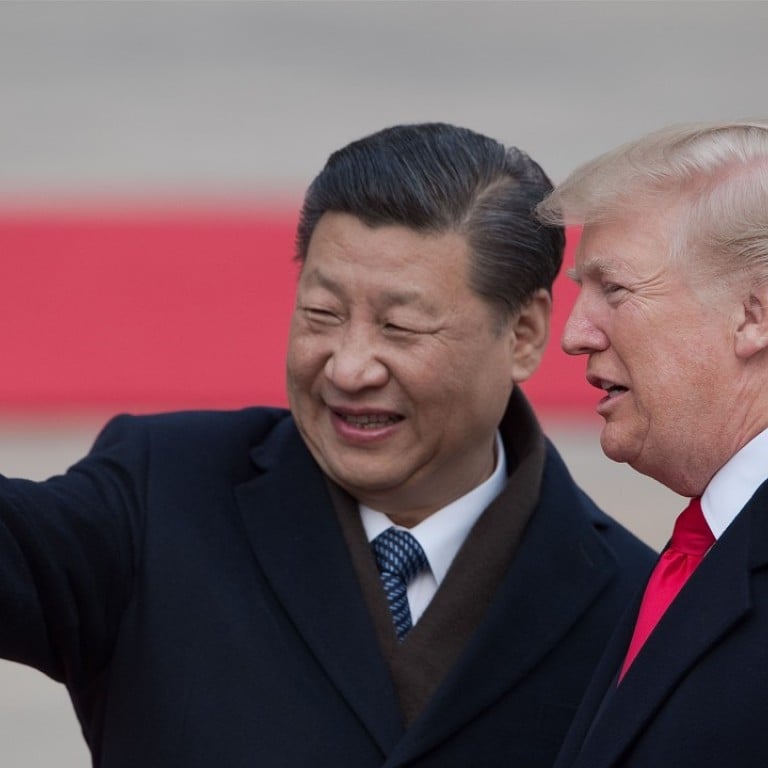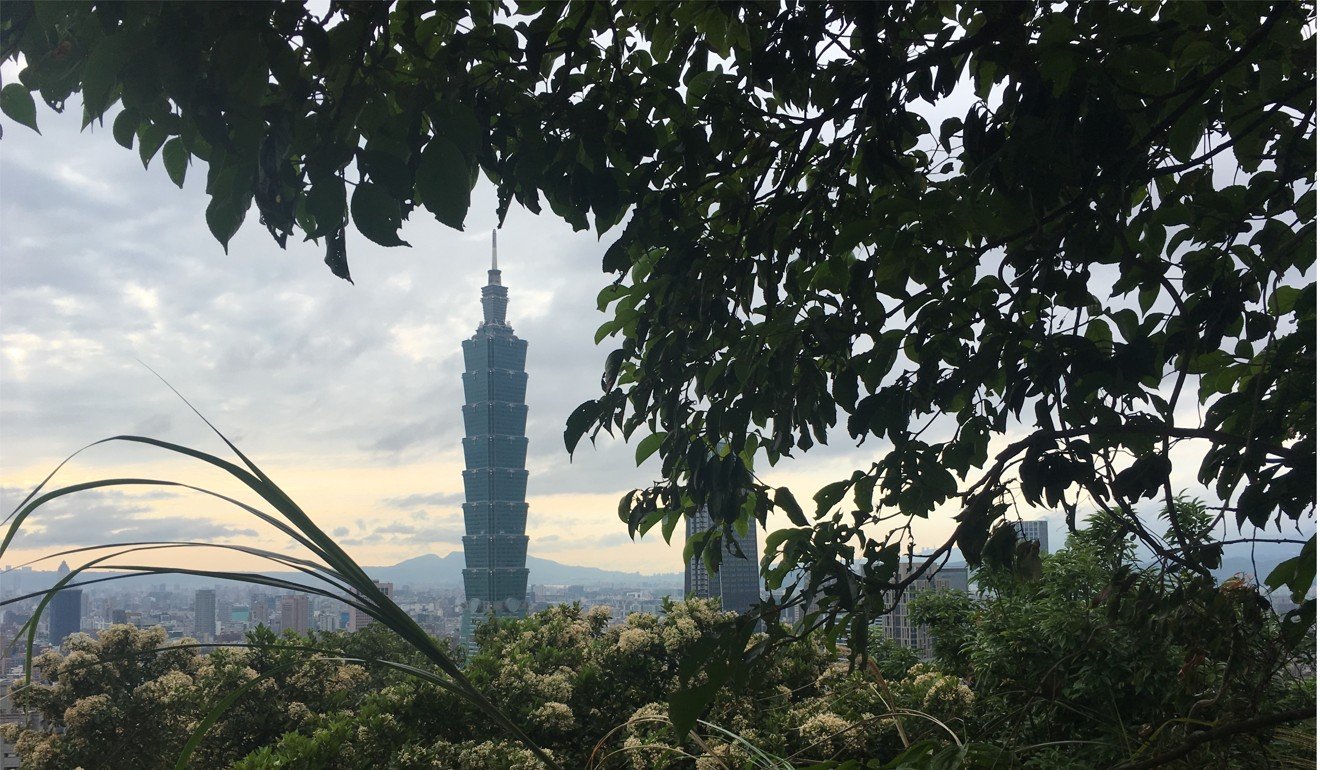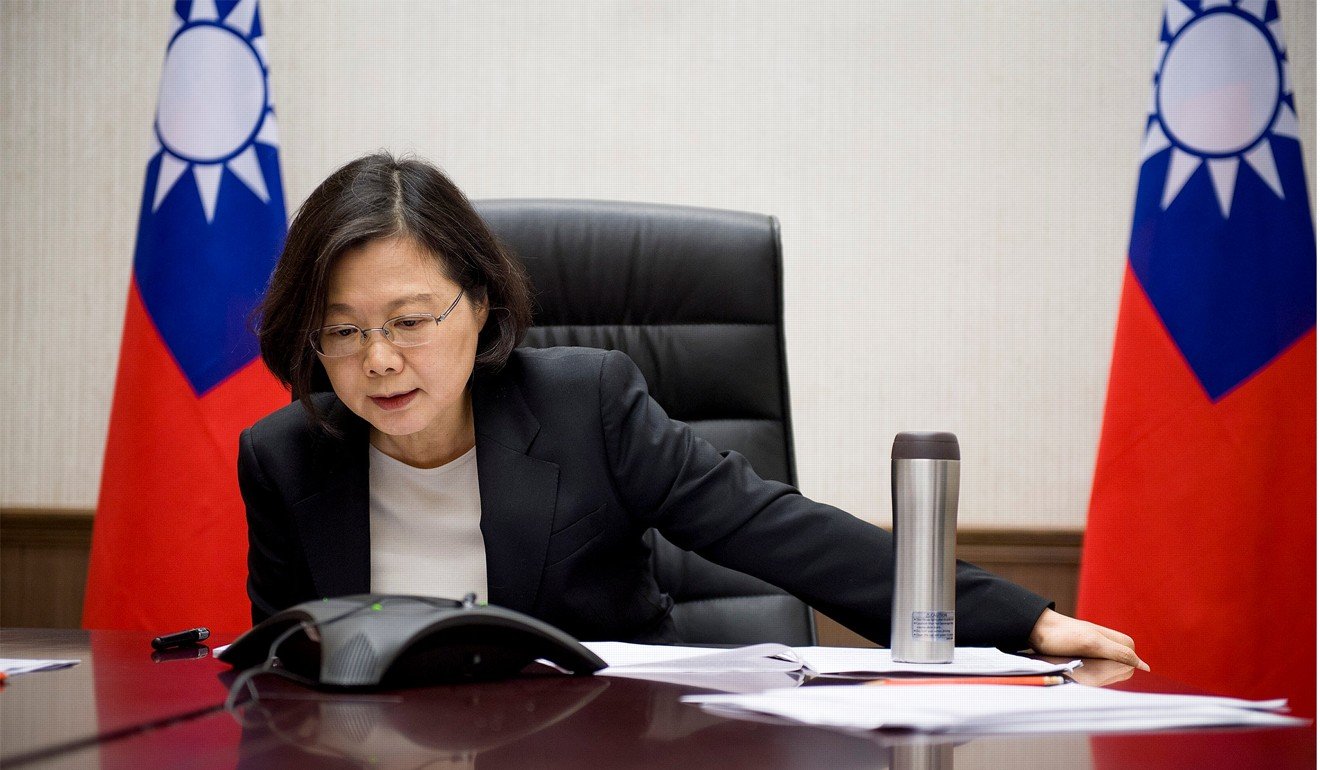
Beijing ‘strongly dissatisfied’ as Trump signs Taiwan Travel Act
Mainland says move, which allows US representatives to meet officials from self-ruled island, will hurt bilateral relations
US President Donald Trump on Saturday defied a warning from Beijing and signed a measure allowing American officials to step up exchanges with Taiwan, a move analysts said will strain already tense Sino-US relations.
Trump’s endorsement of the Taiwan Travel Act comes as Beijing and Washington are in a stand-off over trade and Beijing’s attempts to boost its influence worldwide, with the US House of Representatives proposing that China’s cultural outposts in the US be registered as foreign agents.
The Chinese embassy in Washington said in a statement on Saturday that China was “strongly dissatisfied with” the travel act and firmly opposed it.
“The relevant clauses of the Taiwan Travel Act severely violate the one-China principle,” a statement from the Chinese embassy in Washington said.
The statement said the US should stop pursuing any official ties with Taiwan or improving its current relations with Taiwan in any substantive way.
The White House said the bill would pave the way for more official exchanges with Taipei.
The bill said it should be the policy of the United States to allow officials at all levels of the government to travel to Taiwan to meet their counterparts.
It also said the government should allow high-level Taiwanese officials to enter the United States under conditions of appropriate respect, and to meet their US counterparts.
Taiwan cheered the signing of the act, expressing gratitude for US support for the island.
A statement released by its Foreign Affairs Ministry said it would continue to maintain close contacts with the US and deepen bilateral partnerships at all levels.
“The relationship between Taiwan and the US is close, and has been consolidated after efforts by both sides in recent years,” it said. “The US executive branch has sent more senior officials to Taiwan since Trump has come to office.”
The US travel bill, introduced by Steve Chabot, a Republican congressman from Ohio, had earlier won approval from the House and Senate.
Taiwan has been self-governed since the end of China’s civil war in 1949, but Beijing has always considered it a renegade province awaiting reunification, by force if necessary.
Before his inauguration, Trump angered Beijing by speaking over the phone to Taiwan's President Tsai Ing-wen and suggesting he might use the so-called one-China policy as a bargaining chip to advance US interests in trade, currency and strategic issues, such as the disputed South China Sea.
In December, diplomat Li Kexin warned that Beijing would seize Taiwan by force if US warships visited Taiwan.
But contacts between Taiwan and the US are ongoing despite Beijing’s opposition. A US-Taiwan defence industry conference will be held in Taiwan in May to discuss arms sales.

Shi Yinghong, a professor of international relations at Renmin University in Beijing, said Trump’s signing of the act was a “serious setback” in Sino-US relations.
“The Taiwan Travel Act has offered the possibility that officials, even high-level officials, from the US and Taiwan could conduct consultations on any issues. This is a setback in the one-China policy with a severe negative impact on bilateral relations, and could send a misleading signal to the pro-independence force in Taiwan.
“China’s basic strategy with the Trump administration is to be patient, trying not to make major counter-US moves ... Trump’s signing of [this act] could mean that China’s strategy in the past year has failed to meet its goal.”
Lu Xiang, a US specialist with the Chinese Academy of Social Sciences, said Beijing still needed to be cautious.
“But I think [the signing of the act] is not a total surprise to Beijing, given its high level of support in the US Congress. However, even though Beijing can do little about the signing of the act now, it is ready for measures to respond [to any tangible moves from the US] if necessary.”

Beijing’s new Taiwan policies reveal its plans for greater integration
China and the United States are already locking horns over other issues. US congressman for South Carolina Joe Wilson said he was drafting a bill that would put foreign funding at US universities, including programmes organised by the Confucius Institute, under closer scrutiny.
Wilson said the move would let the American people know that the Chinese programmes were disseminating propaganda.
Beijing has rejected suggestions that it runs a political infiltration campaign overseas, saying it has never used the Chinese diaspora to interfere in another nation’s affairs.

